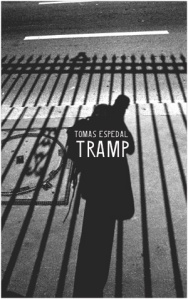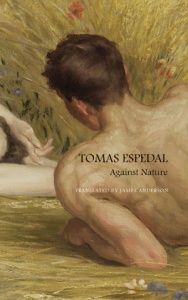What is that changes when we reread? Not the sentences, though they may convey different meanings on rereading. As readers, we change, our moods or sensibilities are changed by experience, by other things we’ve read. It is also possible to reach back to past versions of ourselves. May it be possible to learn more about ourselves from the changes to how we react to a particular book, or writer’s work?
Geoff Dyer, like me, is a relentless book-culler, making his library, “tighter and tighter, again replicating in a personal way the larger process of canon formation by elimination and erosion over time.” It can be dispiriting to revisit a favourite writer’s work, as I did last year with Geoff Dyer’s books, only to discover that where there was once enchantment, there is now little more than curiosity about how these sentences, words or stories, once cast such a spell. (With the exception of But Beautiful, which remains one of the finest books I’ve read about music and musicians.)
So it is with Tomas Espedal’s work. Although I still found a measure of pleasure and silence in Against Art, rereading Against Nature, Tramp, and reading for the first time the newly translated Bergeners didn’t disappoint, but there was not that special intimate encounter in which one fully inhabits a world carefully created by its writer. A certain narrative force carried me forward, but left me little desire to continue to engage with his work. For the most part, his literary and aesthetic reflections felt quotidian, in the case of the former: gossipy and trivial.
There is a certain satisfaction in the idea that rereading is an essential part of challenging our past selves and reshaping our personal literary canon, that, as Dyer writes, our library will be distilled to just what is essential: “In a quasi-Borgesian way, I would ideally draw my last breath just as I turned the final page of the only unread book left in my collection. At that moment my library – my life – would be complete.”





This is a fascinating concept. I am finding, as I reach my 50s, that I have little patience with books I enjoyed when younger, and am discovering new joys and delights in books that would not previously have interested me. I have a keen desire to whittle my book collection to ‘the essentials’ but fear that my choices now will not be the choices I wish to make in the future. Perhaps it doesn’t matter – one’s library can be a vibrant, living, breathing creature (rather than a dusty, static fossil), endlessly ebbing and flowing with the course of one’s life.
It is a little dismaying, as I’ve found, to cull most of a writer’s work from my library, and then think it was an impetuous mistake. But I culled around 800 books last year, ten years of reading, and feel lighter, less encumbered. You are right about how crucial it is that a library lives and shape-shifts over time. It is one of the aspects of ageing I enjoy, this distilling of what is essential.
I know exactly what you mean. I found myself buying a couple of books last year which I had previously owned and culled. Curating one’s library is a most absorbing hobby in itself, let alone the actual reading!
I suspect many of my favourite books from my youth would not bear much rereading now (Jane Austen is an exception, as is Kafka). I think I’d rather remember in untested nostalgia (i.e. wihout a physical copy of the book in the house to disprove me).
The hazards set in with those yet to achieve classic status (most never will). I suspect that Austen, Kafka, those writers that have a solid status in The Canon are canonical because their work does sustain rereading throughout life.
Re-reading is a risk – I found that out at a very young age when we read “Cider With Rosie” at school. I thought I loved it first time round, but hated it on a revisit a little later. And I picked it up again last year and couldn’t get further than the first chapter so I obviously haven’t changed my view! A lot of the books have fortunately survived, however, and particularly many of those I read in my 20s. I find myself finding Hermann Hesse a little more indigestible nowadays, and I haven’t gone back to Kafka’s novels for decades. Fortunately Calvino survives always.
Oh, Hesse, not that I was a huge fan, is lost on me now. It aged rather badly. I haven’t yet tested my old love for Calvino. I suspect it might not stand up.
I have a fear of revisiting certain writers who were once important to me, but I suspect now would not (Murakami is just one example; and I worry even more about Calvino, because he was more important to me). I still think fondly on the pleasure such writers gave me and how they shaped my sense of self. And I worry that feeling would be tarnished if I revisited them. But maybe that feeling is foolish? Would it change the past pleasure at all? Or would it give me new pleasures, such as realizing I’d changed?
In a similar exchange on Twitter, @deathzen offered the following:
@timesflow @damiankelleher Makes sense, though, doesn’t it? It may not even be outgrowing writers as much as it is assimilating their work & moving on to whatever is more personally satisfying — in these times, or at this age. I’ve done the same w/ music, film, visual art, people, environments, etc. (Hi!)
This feels about right to me, the idea of assimilation.
Interesting–for me (especially as a Jew) assimilation is really double-edged. On the one hand, it can lead to acceptance, sometimes even survival. But on the other, it leads to erasure; it can be a way of losing things that matter.
Perhaps assimilation in this context is more like ingestion? The very real idea that we are what we eat, or in this case we are what we read. (I understand that word has particular cultural connotations.)
I guess it depends whether assimilation is about taking in or about being taken in (in both senses of the term). The latter is always a possibility.
A thought-provoking post, Anthony. I think I have just a few authors I regularly re-read. This year, re-reading Compass, Zone and Street of Thieves in the light of having discovered Mohamed Choukri was very rewarding. I can see myself going back to them again. As for owning books, my desire diminuishes as the years pass. Last year I borrowed a lot of books from the library (which might only have been possible with the access I have to an incredibly good university collection and the ILL service). I don’t have to have them on the shelf forever. I think often I get a rush the first time I discover a writer and want to read everything by them. (Like falling in love, exhilarating at the start, then mellows… and maybe dissipates over time). Maybe its time for another cull…? Hmmm…
My intention is to distil my library down to a core personal canon of those that will sustain multiple readings. I plan to reread Énard this year too. I’m in the midst of that exhilaration for Fanny Howe’s work at the moment.
In my life as an amateur reader, I almost never re-read. Part of me wants to, but the part that wants to read everything always wins. In my life as a professional reader, I re-read all the time. Teaching is one of the best ways of re-reading I know, and it is the best test for me if a book really matters to me. I’m also interested in the way my feelings about a book change over time as I keep teaching it.
Good post! I’m enjoying reading the comments.
Thank you. It must be so interesting teaching a text, the ultimate rereading. Have you ever ended up teaching a text that no longer gave you rewards of any sort?
Yes, but only texts that I didn’t care much for in the first place, and assigned because they were useful to me, allowed me to tell a certain story. The two I’m thinking about are Wiesel’s Night and Schindler’s List, both of which I’ve had to give up, because after so many years I just couldn’t take them anymore.
I’ve definitely taught books once or twice and decided they’re not as good as I thought they were (or at least that I didn’t have a way into teaching them). But most of the books I teach just keep giving and giving.
I can imagine. It would be fascinating to teach Karamazov or Magic Mountain, one of those books that would appear to sustain any number of rereadings.
Yes, although I find teaching really long books difficult. Students get frustrated. Probably the longest book I teach regularly is Women in Love, which students mostly quite like, but even there they complain about length. But Lawrence, Woolf, Henry Green, Spiegelman, Larsen, Levi–these writers just get richer and richer.
I love re-reading and find it fascinating: I’m having yet another changed reaction to many of the nuances in the Iris Murdoch novels I’m working my way through for the fourth time at the moment. I was confused by a re-read of a Beverly Nichols children’s book very recently (I had no idea of the subtext when I read it as a child) and there are some books I feel it would be foolish to re-read, like Catcher in the Rye!
Fourth time. That is the sort of retreading I intend, reading deeply rather than broadly. Murdoch is one of those writers I must reread in full. I blazed through her work in my twenties and am curious to see what I’d fine there now. There are certain texts, certain writers (Salinger) that I’m happy to leave to the youth I left behind.
It’s great. I discovered her aged 14 in 1986 and read everything published up until then in PB then the PBs as they were published. Then I did the whole lot in my late 20s and in my 30s with a group of friends, one a month then every 2 months. That started off my research project on her, too. Now again, but I have read some more times in the interim – at least Philosopher’s Pupil which I read a chunk of in the reception of a Turkish Bath in Turkey! They honestly change and show me new aspects every time, and I get a lot out of thinking of all the other reads of each book.
Have you tackled Murdoch’s non-fiction yet? I’m also interested in how reading a writer so intensely over such an extended period shows you new things about your past selves. It’s fascinating. Thanks for commenting.
I’ve read Sartre but I’m not steeped in the language of philosophy so I do struggle. But yes, the re-reading does show you yourself in reflection – although I’m still bamboozled as to what I got out of A Severed Head when I enthusiastically read it aged 14, an only child in a quiet village, living a sheltered life and at an all-girls’ school!
Having had to re-read Catcher a couple of years ago to advise a Senior thesis, I can safely say you do not want to go anywhere near it.
I am not a big rereader because there are so many books, especially classic works of literature, that I want to read for the first time, and I think rereading cuts into a huge chunk of my time because I’m such a slow reader. That being said, I have reread three books in the past several years: Middlemarch, The Portrait of a Lady, and The Age of Innocence. Middlemarch was just as wonderful the second time around, and I intend to read it again in a few years (I read a professor write that Middlemarch is a book that can be profitably revisited every five or so years). The Portrait of a Lady was a book I loved on the second reading, and I understood it even better so that one can sustain another reading years down the road. The Age of Innocence was not a book I loved as much on a second reading, and I suspect The House of Mirth would now be my favorite Wharton so I plan to read that again sometime.
I do think the Divine Comedy is one of the few works of art that can be reread again and again because there is so much contained in the poem, and I think the works of Shakespeare and the classics (Homer and Vergil) also repay careful rereading.
And then there are short stories I do intend to reread because of the feelings they evoked in me the first time I read them. In the Gloaming is one of those stories I want to return to, as well as may of the Chekhov stories I have read.
This time last year I was planning on spending 6 months rereading the Divine Comedy and some of its secondary literature. It didn’t happen, but a project that is still very much in mind.
I read Middlemarch for the first time last year and was looking forward to rereading before I had finished my first reading.